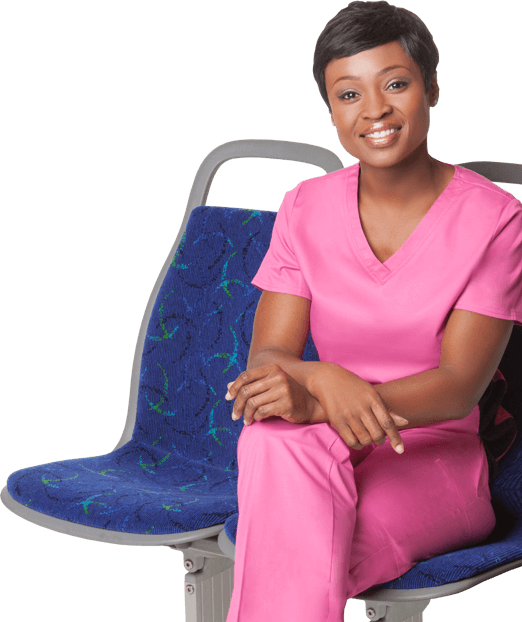Since Monday, Rock Region METRO has been notified that four employees, all fixed route bus operators, have tested positive for COVID-19. This follows a July 14 notification of a fixed route operator testing positive for COVID-19, which followed the June 8 notification of the agency’s first known COVID-19 positive case for a METRO employee. Of the five July employee positive COVID-19 cases, three are considered very low risk to METRO riders and employees, as the three cases developed and were reported during employee time off from work; the other two July cases were reported as operators experienced symptoms during a period of regularly scheduled work. One of the five COVID-19-positive July case employees has completed a full 14-day quarantine and has returned to work.
As a direct result of agency efforts to contact-trace and require quarantining and testing for other employees who may have been in close contact with COVID-19-positive employees or relatives, 16 additional staffers are currently awaiting test results and/or fulfilling a 14-day quarantine.
METRO has scheduled multiple service cuts for Friday, July 24 and is actively engaged in notifying riders at this time. Riders should expect additional service cuts as METRO monitors staff absences and makes adjustments as necessary.
METRO has created a case summary log at the following link to actively track and report COVID-19 employee cases: http://rockregion.dev.perch.is/rock-region-metro-covid-19-case-summary/. This includes noting when deep decontamination processes are completed. METRO follows vehicle decontamination with a waiting period before vehicles driven by COVID-19 employees are placed in operation again. The vehicles the “close contact” METRO employees operate are also being removed from service to undergo the same decontamination and waiting process.
All METRO bus operators and riders have been required to wear face coverings fully covering their noses and mouths since April 20, and sneeze guards were installed on all METRO fixed route buses by June 24 when fare collection enforcement was resumed.
These precautions are in addition to numerous other precautions METRO has put in place to reduce the risk of exposure to coronavirus for employees and riders. Riders are continually advised to consider their level of risk of coronavirus exposure in their daily activities, including using public transit, and follow CDC guidelines accordingly.
“For almost three months, METRO was able to avoid having one employee COVID-19 case, and I want to commend our team for the extraordinary efforts they have been making to make riders feel safe and to try and reduce the risk of coronavirus exposure,” said Charles Frazier, METRO executive director. “Unfortunately, central Arkansas COVID-19 cases are on the rise, and our employees are central Arkansas residents. Safety continues to be our No. 1 priority, and the health of our employees, riders and community at large is paramount. We remain focused and committed to decontamination efforts and following CDC guidelines and industry best practices to do our part in protecting public health while providing essential public transit service. To that end, even though we know it is painful to have to make service adjustments, we must do so while we are experiencing unprecedented levels of staff absences. Our goal is to keep as much service on the road as possible while following best practices to prevent the spread of the virus. We ask riders for their patience as we navigate this challenging time.”
METRO will continue to keep riders abreast of any COVID-19 cases among its staff members, providing as many specific details as possible while also protecting employee confidentiality rights, as required by law and as a best practice. In addition to the actions outlined above, METRO continues to take appropriate measures to protect the public’s health and safety during the COVID-19 pandemic, as summarized below:
It has been a standard practice to sanitize vehicles; offer on-board hand sanitizer stations to riders and hand sanitizer stations at the River Cities Travel Center (the downtown Little Rock local bus station); offer an on-site, full-time janitor at the travel center; and offer METRO drivers and other employees hand sanitizer stations and disposable gloves at each METRO property prior to the COVID-19 outbreak. These measures continue. In addition, METRO:
• Purchased special machines to fog sanitizer product into fleet vehicles nightly and has increased its fleet sanitation schedule, wiping down all high-touch surfaces daily.
• Increased sanitation procedures at each METRO property to reduce the risk of virus exposure for employees.
• Is screening employees with mandatory beginning-of-shift temperature checks.
• Provides and requires all employees to wear face masks in shared spaces, including transit vehicles.
• Limits passengers per bus and paratransit vehicle and suspended Lost and Found services to encourage social distancing.
• Placed new ion filtration systems on buses. These systems improve indoor air quality by reducing airborne contaminants; oxidizing volatile organic compounds; reducing airborne particulate matter; killing inactivated bacteria, mold and viruses; and enhancing the effectiveness of filtration media and evaporator coils.
• Requires passengers to wear a face covering that fully covers the nose and mouth while riding.
• Maintains public restrooms and introduced portable handwashing stations to riders at the River Cities Travel Center.
• Installed new UVC emitters to air handling equipment on METRO property. These devices inactivate microbial organisms (bacteria, viruses and molds) that can trigger a range of symptoms from watery eyes and headaches to severe allergy and asthma responses. The recirculating air in the HVAC system creates redundancy in exposing microorganisms to UVC, ensuring multiple passes so the light energy is effective against large quantities of airborne microorganisms.
# # #











